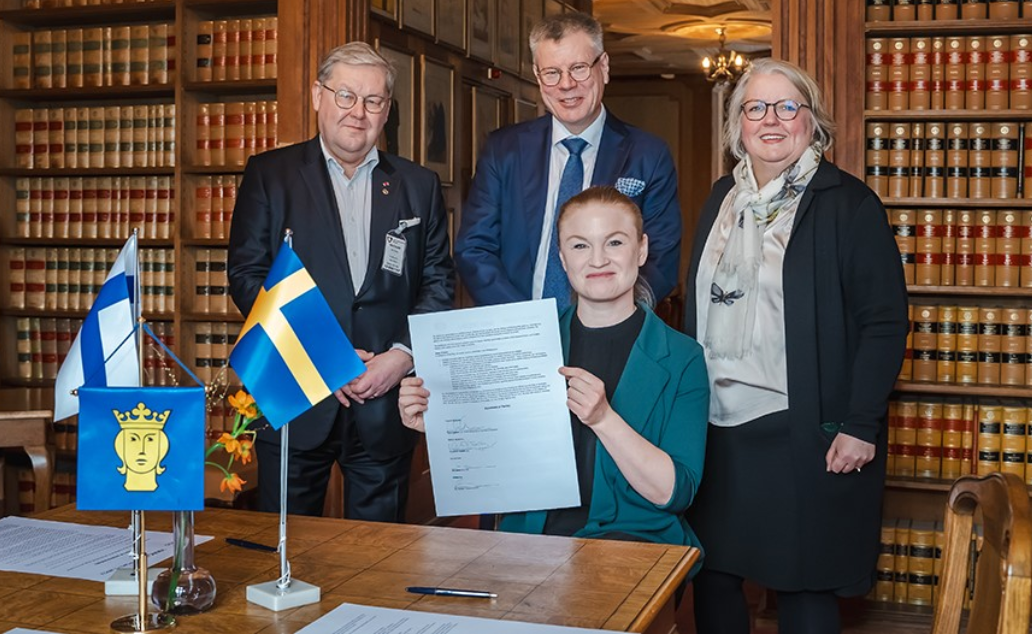
Finnish maritime giant Viking Line has embarked on an ambitious journey, signing a groundbreaking Memorandum of Understanding (MoU) with the Ports of Stockholm and the Port of Turku. Together, they are charting a course towards establishing a green maritime corridor connecting Turku and Stockholm, with the ambitious target of achieving 100% carbon neutrality by 2035.
The collaborative initiative is fueled by a shared commitment to developing scalable solutions that eliminate the reliance on fossil fuels, paving the way for environmentally friendly maritime travel between the two strategic locations.
Jan Hanses, President and CEO of Viking Line, expressed the company’s dedication to environmental stewardship, stating, “Viking Line is a shipping company with its roots in this sensitive archipelago. For us, the work to protect and preserve the Baltic Sea is in our DNA.”
The project aligns with the Clydebank Declaration’s criteria for a green maritime corridor, receiving confirmation from both Sweden and Finland. Impressively, this initiative is surging ahead of the schedule outlined in the EU’s Fit for 55 climate legislation package.
Clara Lindblom, Chair of the Board of Ports of Stockholm, emphasized the urgency of tangible steps toward a green transition, stating, “Climate change is happening here and now, so it is more important than ever to take concrete steps for the green transition.”
Erik Söderholm, Managing Director of the Port of Turku, highlighted their commitment, saying, “The Port of Turku is embedded in a very sensitive archipelago, which gives us the responsibility to always respect our surroundings in our daily work.”
This transformative partnership will leverage insights from the ongoing Decatrip project, a collaborative effort involving Viking Line, Rauma Marine Constructions, Åbo Akademi University, and Kempower.
The Decatrip project, generously awarded €1,596,000 from Business Finland in 2022, focuses on making a sea route operated by Viking Line carbon neutral. Rauma Marine Constructions is developing energy-efficient ship operation solutions, and together with Kempower, they are working on onboard electric vehicle charging.
Åbo Akademi University, serving as a research partner, is evaluating the societal benefits of this green corridor, while the PBI Research Institute coordinates the project’s efforts.
The commitment extends beyond environmental goals, with the parties gradually reducing carbon dioxide emissions throughout the project’s duration. The ultimate aim is the creation of a 100% carbon-neutral corridor. Furthermore, the partnership holds the potential for expansion, involving key stakeholders in maritime shipping, including goods owners and freight forwarders.
The historic agreement solidifying this endeavor was signed on February 6, 2024, at the esteemed Stockholm City Hall, marking a significant stride towards sustainable maritime practices.

